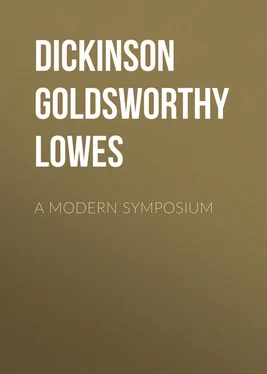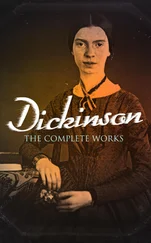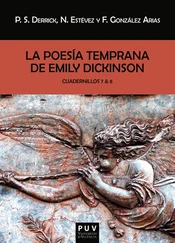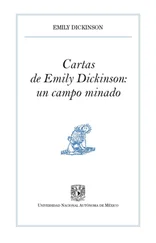Goldsworthy Dickinson - A Modern Symposium
Здесь есть возможность читать онлайн «Goldsworthy Dickinson - A Modern Symposium» — ознакомительный отрывок электронной книги совершенно бесплатно, а после прочтения отрывка купить полную версию. В некоторых случаях можно слушать аудио, скачать через торрент в формате fb2 и присутствует краткое содержание. Жанр: foreign_antique, foreign_prose, на английском языке. Описание произведения, (предисловие) а так же отзывы посетителей доступны на портале библиотеки ЛибКат.
- Название:A Modern Symposium
- Автор:
- Жанр:
- Год:неизвестен
- ISBN:нет данных
- Рейтинг книги:5 / 5. Голосов: 1
-
Избранное:Добавить в избранное
- Отзывы:
-
Ваша оценка:
- 100
- 1
- 2
- 3
- 4
- 5
A Modern Symposium: краткое содержание, описание и аннотация
Предлагаем к чтению аннотацию, описание, краткое содержание или предисловие (зависит от того, что написал сам автор книги «A Modern Symposium»). Если вы не нашли необходимую информацию о книге — напишите в комментариях, мы постараемся отыскать её.
A Modern Symposium — читать онлайн ознакомительный отрывок
Ниже представлен текст книги, разбитый по страницам. Система сохранения места последней прочитанной страницы, позволяет с удобством читать онлайн бесплатно книгу «A Modern Symposium», без необходимости каждый раз заново искать на чём Вы остановились. Поставьте закладку, и сможете в любой момент перейти на страницу, на которой закончили чтение.
Интервал:
Закладка:
"When, however, he claims – or perhaps I should rather say desires – for the distinguished order of which he is a member, an actual and permanent preponderance in the state, there, I confess, I must part company with him. Nay, I cannot even accept the theory, to which he gave expression, of a fixed and stable representation of interests. It is indeed true that society, by the mysterious dispensation of the Divine Being, is wonderfully compounded of the most diverse elements and classes, corresponding to the various needs and requirements of human life. And it is an ancient theory, supported by the authority of great names, by Plato, my revered master, the poet-philosopher, by Aristotle, the founder of political science, that the problem of a statesman is so to adjust these otherwise discordant elements as to form once for all in the body-politic a perfect, a final and immutable harmony. There is, according to this view, one simple chord and one only, which the great organ of society is adapted to play; and the business of the legislator is merely to tune the instrument so that it shall play it correctly. Thus, if Plato could have had his way, his great common chord, his harmony of producers, soldiers and philosophers, would still have been droning monotonously down the ages, wherever men were assembled to dwell together. Doubtless the concord he conceived was beautiful. But the dissonances he would have silenced, but which, with ever-augmenting force, peal and crash, from his day to ours, through the echoing vault of time, embody, as I am apt to think, a harmony more august than any which even he was able to imagine, and in their intricate succession weave the plan of a world-symphony too high to be apprehended save in part by our grosser sense, but perceived with delight by the pure intelligence of immortal spirits. It is indeed the fundamental defect of all imaginary polities – and how much more of such as fossilize, without even idealizing, the actual! – that even though they be perfect, their perfection is relative only to a single set of conditions; and that could they perpetuate themselves they would also perpetuate these, which should have been but brief and transitory phases in the history of the race. Had it been possible for Plato to establish over the habitable globe his golden chain of philosophic cities, he would have riveted upon the world for ever the institutions of slavery and caste, would have sealed at the source the springs of science and invention, and imprisoned in perennial impotence that mighty genius of empire which alone has been able to co-ordinate to a common and beneficent end the stubborn and rebellious members of this growing creature Man. And if the imagination of a Plato, permitted to work its will, would thus have sterilized the germs of progress, what shall we say of such men as ourselves imposing on the fecundity of nature the limits and rules of our imperfect mensuration! Rather should we, in humility, submit ourselves to her guidance, and so adapt our institutions that they shall hamper as little as may be the movements and forces operating within them. For it is by conflict, as we have now learnt, that the higher emerges from the lower, and nature herself, it would almost seem, does not direct but looks on, as her world emerges in painful toil from chaos. We do not find her with precipitate zeal intervening to arrest at a given point the ferment of creation; stretching her hand when she sees the gleam of the halcyon or the rose to bid the process cease that would destroy them; and sacrificing to the completeness of those lower forms the nobler imperfection of man and of what may lie beyond him. She looks always to the end; and so in our statesmanship should we, striving to express, not to limit, by our institutions the forces with which we have to deal. Our polity should grow, like a skin, upon the living tissue of society. For who are we that we should say to this man or that, go plough, keep shop, or govern the state? That we should say to the merchant, 'thus much power shall be yours,' and to the farmer, 'thus much yours?' No! rather let us say to each and to all, Take the place you can, enjoy the authority you can win! Let our constitution express the balance of forces in our society, and as they change let the disposition of power change with them! That is the creed of liberalism, supported by nature herself, and sanctioned, I would add with reverence, by the Almighty Power, in the disposition and order of His stupendous creation.
"But it is not a creed that levels, nor one that destroys. None can have more regard than I – not Cantilupe himself – for our ancient crown, our hereditary aristocracy. These, while they deserve it – and long may they do so! – will retain their honoured place in the hearts and affections of the people. Only, alongside of them, I would make room for all elements and interests that may come into being in the natural course of the play of social forces. But these will be far too numerous, far too inextricably interwoven, too rapidly changing in relative weight and importance, for the intelligence of man to attempt, by any artificial scheme, to balance and adjust their conflicting claims. Open to all men equally, within the limits of prudence, the avenue to political influence, and let them use, as they can and will, in combined or isolated action, the opportunities thus liberally bestowed. That is the key-note of the policy which I have consistently adopted from my entrance into public life, and which I am prepared to prosecute to the end, though that end should be the universal suffrage so dreaded by the last speaker. He tells me it is a policy of reckless abandonment. But abandonment to what? Abandonment to the people! And the question is, Do we trust the people? I do; he does not! There, I venture to think, is the real difference between us.
"Yes, I am not ashamed to say it, I trust the People! What should I trust, if I could not trust them? What else is a nation but an assemblage of the talents, the capacities, the virtues of the citizens of whom it is composed? To utilize those talents, to evoke those capacities, to offer scope and opportunity to those virtues, must be the end and purpose of every great and generous policy; and to that end, up to the measure of my powers, I have striven to minister, not rashly, I hope, nor with impatience, but in the spirit of a sober and assured faith.
"Such is my conception of liberalism. But if liberalism has its mission at home, not less important are its principles in the region of international relations. I will not now embark on the troubled sea of foreign policy. But on one point I will touch, since it was raised by the last speaker, and that is the question of our foreign trade. In no department of human activity, I will venture to say, are the intentions of the Almighty more plainly indicated, than in this of the interchange of the products of labour. To each part of the habitable globe have been assigned its special gifts for the use and delectation of Man; to every nation its peculiar skill, its appropriate opportunities. As the world was created for labour, so it was created for exchange. Across the ocean, bridged at last by the indomitable pertinacity of art, the granaries of the new world call, in their inexhaustible fecundity for the iron and steel, the implements and engines of the old. The shepherd-kings of the limitless plains of Australia, the Indian ryot, the now happily emancipated negro of Georgia and Carolina, feed and are fed by the factories and looms of Manchester and Bradford. Pall Mall is made glad with the produce of the vineyards of France and Spain; and the Italian peasant goes clad in the labours of the Leicester artisan. The golden chain revolves, the silver buckets rise and fall; and one to the other passes on, as it fills and overflows, the stream that pours from Nature's cornucopia! Such is the law ordained by the Power that presides over the destinies of the world; and not all the interferences of man with His beneficent purposes can avail altogether to check and frustrate their happy operation. Yet have the blind cupidity, the ignorant apprehensions of national zeal dislocated, so far as was possible, the wheels and cogs of the great machine, hampered its working and limited its uses. And if there be anything of which this great nation may justly boast, it is that she has been the first to tear down the barriers and dams of a perverted ingenuity, and to admit in unrestricted plenitude to every channel of her verdant meadows the limpid and fertilizing stream of trade.
Читать дальшеИнтервал:
Закладка:
Похожие книги на «A Modern Symposium»
Представляем Вашему вниманию похожие книги на «A Modern Symposium» списком для выбора. Мы отобрали схожую по названию и смыслу литературу в надежде предоставить читателям больше вариантов отыскать новые, интересные, ещё непрочитанные произведения.
Обсуждение, отзывы о книге «A Modern Symposium» и просто собственные мнения читателей. Оставьте ваши комментарии, напишите, что Вы думаете о произведении, его смысле или главных героях. Укажите что конкретно понравилось, а что нет, и почему Вы так считаете.












